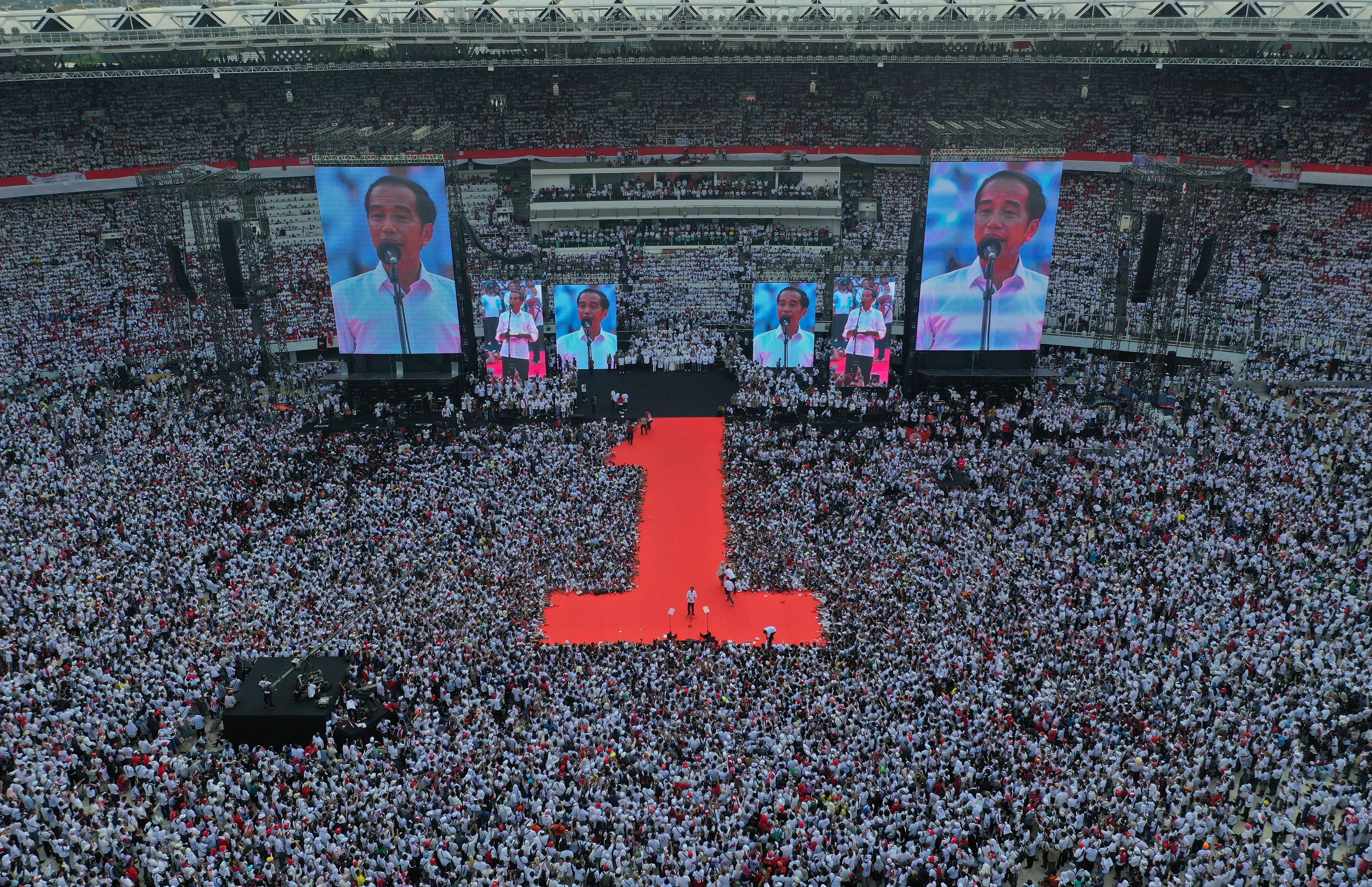April 16, 2019
Earlier this month, the capital of Indonesia opened its first-ever underground metro line. For a traffic-choked megalopolis that had been waiting for the line since the mid 1980s, it was a godsend. For President Joko Widodo, who heads into national elections tomorrow, it was perfect timing.
Mr. Widodo, a former furniture exporter who served as governor of Jakarta and is a major metalhead, was elected five years ago as a refreshing political outsider with a down-to-earth style and a compelling anti-corruption message.
Since then he has stayed popular – way more popular than most other democratically elected leaders -- by building lots of new roads and rail lines (like that Jakarta metro), cutting red tape, and expanding access to healthcare. These are basic things that resonate with voters, particularly the poorer and rural Indonesians who are among his most loyal supporters.
But he's also made some curious compromises. Ahead of this year's 2014 election rematch against Prabowo Subianto – a tough talking military man wistful for Indonesia's authoritarian past – Mr. Widodo has cozied up to other generals linked to the 30-year long Suharto dictatorship, which ended in 1998. He has also used new anti-defamation laws to cow political opponents, raising concerns among human rights watchdogs.
Lastly, in a bid to secure the vote of Indonesia's sizable population of conservative Muslims, the ostensibly secular-minded Widodo chose to run alongside an influential ultra-conservative cleric who, back in in 2017, helped to land a Christian political ally of Widodo's in jail on dubious blasphemy charges.
Upshot: Widodo's winning personality and effective policies have put him in a strong position to win tomorrow, but so too have his political compromises. If he wins, the influence of the clerics and generals will be a big story to watch in Widodo's second term.
Want more? Check out our primer on Indonesia's big election.
More For You
- YouTube
In this Quick Take, Ian Bremmer breaks down the growing tensions between the US and Iran, calling it "the next area of potential large-scale conflict where President Trump is interested in changing the facts on the ground."
Most Popular
A flood victim stands at her flooded home after weeks of heavy rainfall in Boane District, Maputo, Mozambique, January 19, 2026.
REUTERS/Amilton Neves/File Photo
392,000: The estimated number of people displaced across Mozambique by recent rain-induced floods. Severe flooding in the southern African nation, as well as in South Africa and Zimbabwe, has killed over 100 people.
© 2025 GZERO Media. All Rights Reserved | A Eurasia Group media company.
